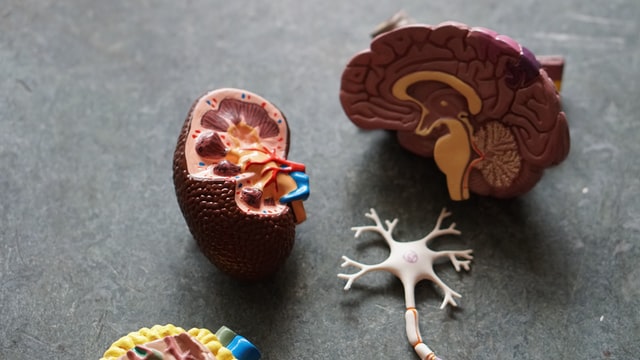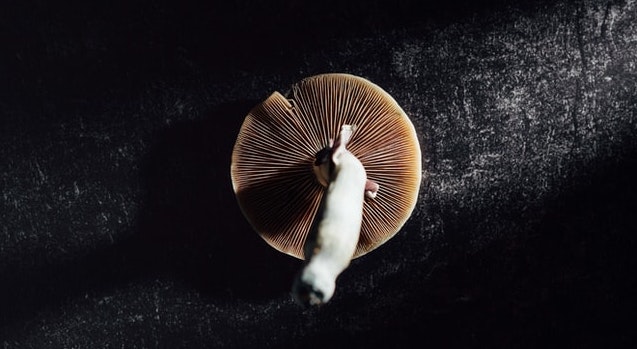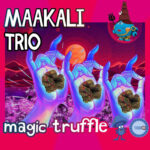It is a testament to modern medicine that people are living longer. However, as this continues, more people will develop Alzheimers or other dementia-related conditions during their lifetime.

Psychedelics As A Treatment for Alzheimer’s Disease
A growing cohort of scientists however, think there could be hope on the horizon for a condition that previously had very little in the way of treatments. Psychedelics, such as psilocybin (from magic mushrooms and truffles) and LSD have powerful anti-inflammatory properties. They also improve the brain’s neuroplasticity and fight brain-based symptoms with microbiological action.
Globally, around 50 million people are living with dementia, with Alzheimer’s disease accounting for approximately 50 – 70% of these cases. With the growing and aging world population, this number is set to triple. This means any potential methods for the alleviation of these conditions are painfully welcome. This is one of the reasons that the budding psychedelic research is receiving so much attention — there really has been no spark of hope up until now.
What is Alzheimer’s Disease?
Alzheimer’s disease is a progressive neurological disorder. Normal aging generally causes neurodegeneration — the atrophy and decay of brain cells. However, those suffering with Alzheimer’s experience this to a pathological degree, meaning it happens both far more rapidly and severely. The most common cause of dementia, it is characterized by a decline in cognitive, behavioral and social skills, and thus the ability to function and live independently. Alzheimer’s is also linked to brain inflammation.

The cause of this is not clear, but the effects caused by inflammation can be as devastating as neurodegeneration. Inflammation impacts general brain functioning, which increases the problems with memory and learning.
Both neurodegeneration and brain inflammation can severely impact mental health. According to some studies over 40% of Alzheimer’s sufferers show diagnosable symptoms of depression. This means that overall Alzheimer’s patients tend to have a very poor quality of life.
A Multi-Pronged Attack
A recent study, published in Current Topics in Behavioural Sciences explored the multi-pronged way that psychedelics could be used to combat the various symptoms of degenerative brain disease.
There is a promising overlap in the the benefits associated with psychedelic therapy, and the symptoms of Alzheimers. Psilocybin and LSD have remarkable anti-inflammatory capabilities, which have the potential to combat the brain inflammation displayed with the disease.

Additionally, as much as Alzheimer’s is associated with brain degeneration, psychedelics are beginning to be associated with improved neuroplasticity of the brain. This means its ability to grow new neural pathways and change. The frontal lobe and other brain areas that are damaged by Alzheimer’s may have the possibility to improve and grow under the administration of psychedelics.
Psychedelics Aid Memory Recall and Mood
The paper’s researchers, headed by Dr. Albert Garcia-Romeu, also flagged-up that autobiographical memory is altered during a psilocybin or LSD experience. This means they could perhaps be used to improve memory recall and clarity. The researchers wrote:
“…acute changes in autobiographical memory during psychedelic effects have also been reported, suggesting LSD and psilocybin can facilitate recall and vividness of salient life memories, a potentially relevant mechanism for treatment of [Alzheimer’s disease].”

Finally, the research found that the most researched use for psychedelics — as a treatment for mental health conditions — was also pertinent here. As well as combating the brain deterioration caused by Alzheimer’s psychedelics could also treat the depression associated with the diagnosis.
Care For Both Sufferers And Society
Of course, there is currently no definitive cure for a condition like Alzheimer’s. However, Dr. Garcia-Romeu and his John Hopkins University colleagues believe that psychedelics could ease the pain of both sufferers of the condition, and the society who cares for them.
The researchers concluded:
“In sum, three converging biological pathways may be responsible for induced neural plasticity resulting in long-lasting and profound effects following psychedelic administration …
In addition, classic psychedelics ’ antidepressant and anxiolytic effects could provide important inroads for promoting psychological benefits in patients struggling with AD and neuropsychiatric comorbidities such as depression and apathy.”
To put it more clearly, psychedelics have the potential to target the biological, cognitive and psychological symptoms of Alzheimer’s disease. Talk about a triple threat.
More Promising Findings To Come
At this very moment John Hopkins University is recruiting volunteers to take part in a study. This study will explore the use of psilocybin to treat depression caused by an Alzeheimer’s diagnosis. The researchers will administer either a high or moderate dose to volunteers over a course of 8 weeks. During this time, and for 6 months after, they will attend therapeutic meetings. These will be used to assess their mood and quality of life. This will be a key stepping stone in measuring those in the earlier stages of the disease’s reaction to psilocybin.

Research is continuing apace, so fingers crossed there will be more promising findings to come!





